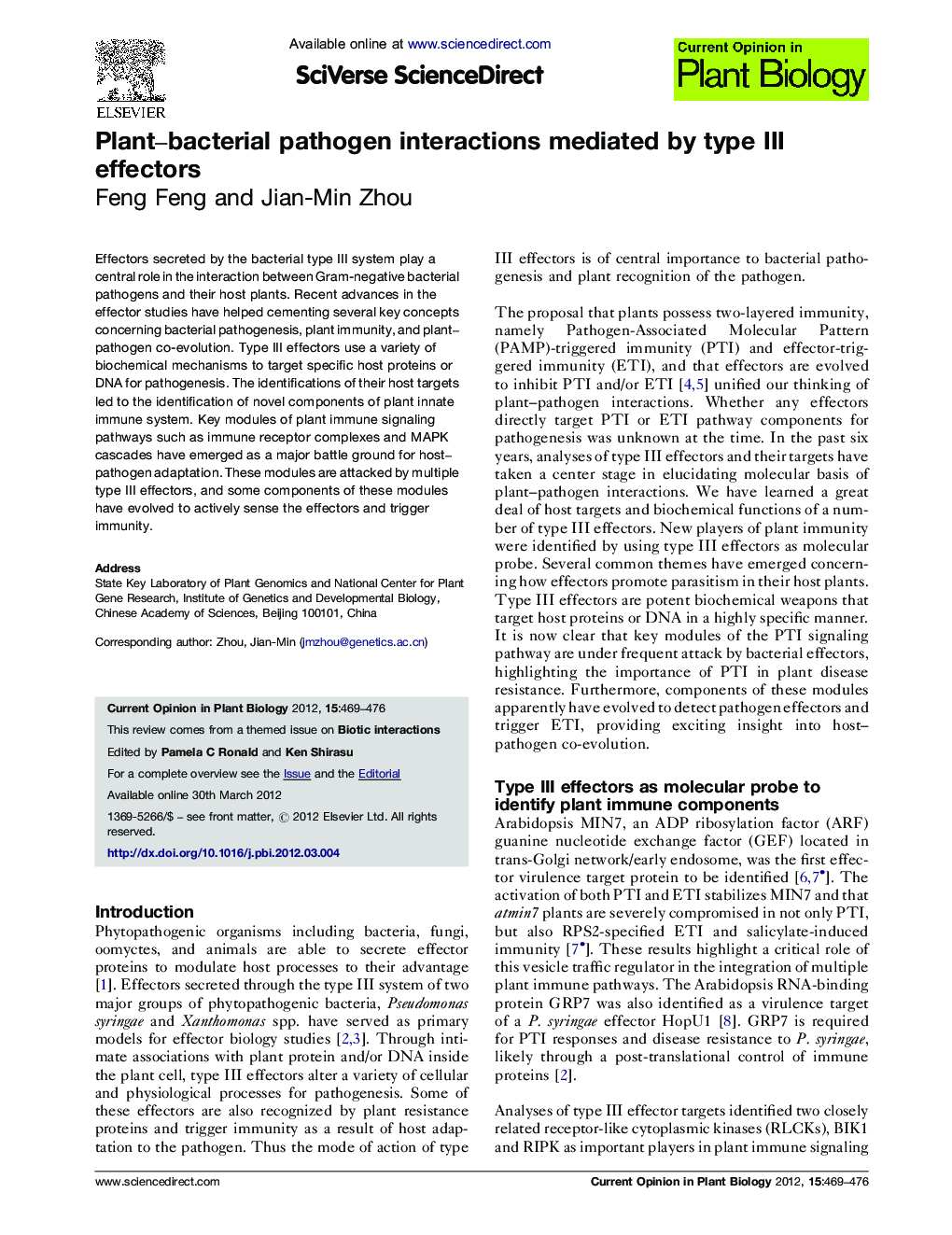| Article ID | Journal | Published Year | Pages | File Type |
|---|---|---|---|---|
| 2046138 | Current Opinion in Plant Biology | 2012 | 8 Pages |
Effectors secreted by the bacterial type III system play a central role in the interaction between Gram-negative bacterial pathogens and their host plants. Recent advances in the effector studies have helped cementing several key concepts concerning bacterial pathogenesis, plant immunity, and plant–pathogen co-evolution. Type III effectors use a variety of biochemical mechanisms to target specific host proteins or DNA for pathogenesis. The identifications of their host targets led to the identification of novel components of plant innate immune system. Key modules of plant immune signaling pathways such as immune receptor complexes and MAPK cascades have emerged as a major battle ground for host–pathogen adaptation. These modules are attacked by multiple type III effectors, and some components of these modules have evolved to actively sense the effectors and trigger immunity.
► Type III effectors are useful for identifying novel plant immune components. ► Key modules of plant immune pathways are targeted by multiple effectors. ► Type III effectors use novel biochemical functions to manipulate host processes. ► Effector targets provide insight into the evolution of plant immunity.
